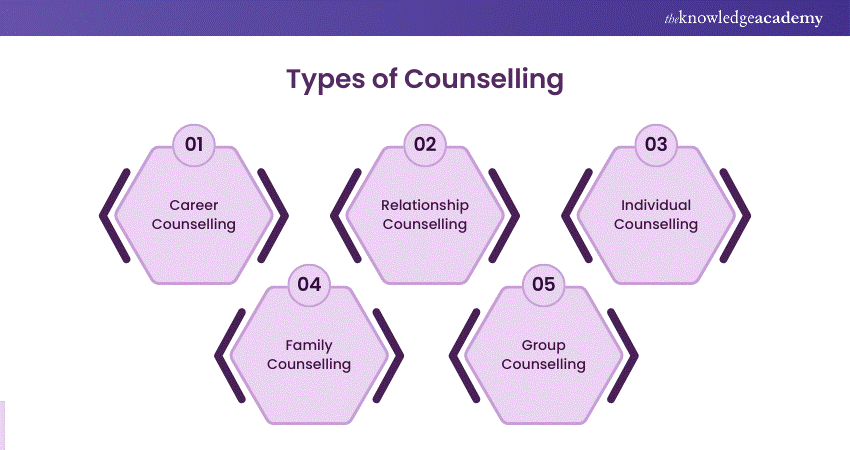Discovering the Advantages of Virtual Therapy in Modern Mental Healthcare
The rise of virtual therapy marks a significant change in mental healthcare. It offers enhanced accessibility, enabling individuals from varied backgrounds to seek help without geographical restraints. Versatility in organizing suits differing way of livings, while the convenience of home can promote visibility. The ramifications of these changes expand beyond mere convenience. The evolving landscape of therapy raises essential questions about its lasting results on individual interaction and therapy results.
Improved Availability for All
Conventional therapy commonly offers barriers such as geographical area and scheduling disputes, virtual therapy substantially boosts availability for people seeking psychological wellness assistance. By getting rid of the demand for physical traveling, virtual therapy enables clients from remote areas or those with flexibility challenges to attach with qualified specialists. This setting of therapy can reach underserved populaces who might lack neighborhood mental wellness sources, consequently resolving variations in accessibility to care. Furthermore, virtual platforms can satisfy varied demands, providing solutions in multiple languages and fitting numerous cultural histories. Customers can engage with a more comprehensive range of professionals, providing them with choices that straighten with their certain demands and preferences. This increased availability fosters a more inclusive environment, enabling people to look for help without the preconception commonly connected with in-person sees. In general, virtual therapy represents a substantial improvement in making psychological healthcare a lot more easily accessible to all.
Flexibility in Scheduling Procedure

As virtual therapy remains to obtain grip, its integral flexibility in scheduling sessions proves to be a significant benefit for several people. Unlike typical in-person therapy, virtual therapy allows customers to select session times that finest fit their individual and professional commitments. This versatility accommodates those with requiring work routines, family obligations, or other dedications that can make going to physical consultations testing.
Customers can easily reschedule or adjust their sessions as required, minimizing the tension linked with stiff appointment systems. The accessibility of numerous time ports throughout the week, consisting of nights and weekend breaks, additionally enhances accessibility. This versatility not only urges consistency in participation yet additionally cultivates a higher dedication to the restorative procedure. Ultimately, the adaptability in scheduling sessions stands for a transformative change in psychological healthcare, empowering people to prioritize their well-being without giving up various other aspects of their lives.
Convenience of a Familiar Environment
The comfort of an acquainted setting substantially enhances the efficiency of virtual therapy for lots of clients. Engaging in therapy from the safety of their very own homes allows people to feel more comfortable, minimizing anxiousness that may go along with standard in-person sessions. This familiarity can assist in open interaction, making it possible for customers to express their ideas and feelings extra easily.
Furthermore, the existence of personal things and the ability to control their surroundings can add to a complacency and leisure. Clients usually report that being in a comfy space allows them to concentrate much more on the therapeutic process rather than the setting itself.
Additionally, the informal nature of virtual sessions can assist dissolve barriers that may exist in a conventional workplace atmosphere, cultivating a deeper connection with therapists. Overall, the convenience of familiar environments plays an important function in boosting the restorative experience and effectiveness for many people looking for mental health and wellness support.
Broader Variety of Therapeutic Alternatives
A broader range of healing options ends up being offered with virtual therapy, enabling customers to accessibility various modalities that might not be viable in standard setups. This adaptability enables people to discover varied methods such as cognitive-behavioral therapy, mindfulness practices, art therapy, and even specialized treatments like trauma-informed care or dialectical behavior therapy.
Clients can select from a broader spectrum of therapists, consisting of those that specialize in specific niche areas or details populaces, boosting the possibility of finding a suitable suit. Virtual systems usually give access to group therapy sessions, assistance communities, and workshops that might be geographically unavailable otherwise.
This variety equips customers to take part in their recovery process according to their distinct choices and demands, potentially raising motivation and dedication to treatment. As a result, the landscape of mental healthcare ends up being more comprehensive and versatile, dealing with a larger array of private experiences and challenges.
Decreased Stigma Surrounding Therapy
Accessing therapy with virtual systems adds to a significant reduction in the preconception traditionally related to mental healthcare. By providing a discreet and exclusive environment, virtual therapy permits individuals to seek help without the concern of being evaluated or determined. This privacy attract those that might otherwise wait to go after in-person therapy because of social perceptions bordering mental wellness.
As the occurrence of virtual therapy boosts, it normalizes the discussion around psychological wellness, making it a much more appropriate part of everyday life. Individuals usually feel much more comfy reviewing their experiences online, advertising openness and reducing sensations of seclusion. The availability of these solutions additionally urges a more comprehensive market to involve with psychological health sources, promoting a culture of assistance as opposed to pity. Ultimately, the increase of virtual therapy plays an essential role in reshaping mindsets towards seeking aid, adding to a much more accepting culture relating to mental health and wellness challenges.
Cost-Effectiveness and Price

Lowered Session Prices
Several people looking for psychological health assistance locate that virtual therapy considerably lowers session expenses contrasted to conventional in-person choices. The elimination of traveling expenses and pause work typically adds to total savings. In addition, lots of virtual therapists supply competitive prices due to reduced overhead prices related to preserving a physical workplace. This change in expense enables customers to accessibility top quality psychological wellness services without the financial stress that might come with traditional therapy. For lots of, this cost enables a lot more constant sessions, which can enhance treatment results. Because of this, virtual therapy not only equalizes accessibility to psychological healthcare but likewise gives a sustainable monetary design that lines up with clients' budgets, making mental health and wellness assistance extra achievable for a bigger audience.
Expanded Gain Access To Choices
While typical therapy commonly presents logistical barriers, virtual therapy significantly expands accessibility alternatives for individuals looking for psychological health treatment. By getting rid of the requirement for traveling and enabling versatile organizing, virtual therapy fits diverse way of lives and dedications. This availability is specifically helpful for those in remote locations or with wheelchair difficulties. Additionally, the cost-effectiveness of virtual therapy lowers monetary strain, making mental wellness solutions much more reachable. Many platforms provide tiered pricing or gliding range costs, promoting affordability. Insurance provider significantly identify virtual therapy, additional improving its monetary availability. Generally, virtual therapy not just broadens the range of who can obtain care but likewise addresses economic barriers, making mental health assistance a lot more inclusive and attainable for all.
Enhanced Continuity of Treatment
Boosted connection of treatment becomes a significant benefit of virtual therapy in contemporary psychological health and wellness care. This approach permits clients to keep constant interaction with their therapists, no matter geographical obstacles or scheduling problems. adhd counselling. The flexibility of virtual sessions cultivates routine check-ins, which are vital for monitoring development and adjusting therapy intends as required
Furthermore, electronic health documents and telehealth platforms promote smooth information sharing among care suppliers. This interconnectedness ensures that all specialists entailed in a person's treatment are updated on treatment developments, leading to more collaborated and reliable interventions.
People usually experience minimized anxiety and enhanced engagement because of the convenience of accessing therapy from acquainted atmospheres. Such availability boosts adherence to treatment regimens, eventually boosting end results - couples counselling. To summarize, virtual therapy not only bridges spaces in mental health services but likewise fortifies the continuity of care, an essential component of successful therapeutic connections
Often Asked Concerns
Exactly How Does Virtual Therapy Guarantee Discretion and Personal Privacy for Customers?
The existing inquiry addresses the actions virtual therapy employs to protect client confidentiality. Utilizing encrypted platforms, safe and secure logins, and compliance with policies like HIPAA, virtual therapy warranties that delicate details stays exclusive and inaccessible to unauthorized people.
Can I Switch Over Therapists Conveniently in Virtual Therapy?
Changing see this website therapists in virtual therapy is usually simple. Clients can interact their wish for an adjustment with the platform, enabling for flexibility in discovering a much better match without the logistical obstacles of in-person appointments.
What Modern technology Do I Need for Virtual Therapy Procedure?
To take part in virtual therapy sessions, a private usually requires a dependable net connection, a computer system or smart device with a cam and see this site microphone, and access to a safe video conferencing system specified by their therapist.

Are Virtual Therapy Sessions as Effective as In-Person Sessions?
Recent researches indicate that virtual therapy sessions can be similarly reliable as in-person sessions, depending on the individual's choices and circumstances. Factors such as comfort and accessibility may improve the overall restorative experience for some clients.
What Should I Do if I Experience Technical Issues During a Session?
If technical concerns develop during a session, one should steadly connect the issue to the therapist, effort to reconnect, or switch to a backup approach. Persistence and versatility are vital in handling these disruptions.